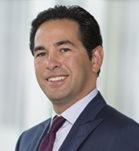

Improving Brain Health in Under a Minute
by Scott Kaiser
As a geriatrician—a physician specializing in the care of older people—focused on addressing cognitive issues, it is exciting to know how many things we can do to improve brain health. Plus, many of these steps can be taken, one at a time, in just a matter of moments, and in many cases for free!
Here are 3 B’s for a Brain Health Boosting Bonus
1. Bust a Move!
To many, it may seem like commonsense at this point, but it can never be emphasized enough: Exercise is an essential component of a healthy lifestyle.
The benefits of regular physical activity are so numerous—especially for our brain health—that, in a sense, exercise is the closest thing we have to a miracle drug.
To achieve one’s daily recommended level of exercise you do not need to do it all at once. Your activity can be spread throughout the day and, in fact, there may even be unique benefits to short bursts of vigorous activity—high-intensity intervals. When it comes to brain-healthy exercise, evidence suggests that there is an added boost when you combine aerobic and cognitive challenges.
For example, if you were to learn a new dance routine, you would not only reap the benefits from getting up and getting your blood pumping but also from the mental challenge involved in learning the steps and keeping yourself coordinated, especially if, like me, you have two left feet!
When you consider the opportunity for creative expression, the joy of connection, and that smile you’ve just put on your face (all brain health-boosting factors), the benefits really start to add up.
So get up out of your chair, step away from the screen, and don’t just stand there, bust a move.
2. Breathe
A robust and rapidly expanding body of research captures the numerous benefits of meditation. While there are many forms of meditation and contemplative practices that one can spend a lifetime cultivating, the brain health benefits can come with simple first steps.
For example, just taking some mindful breaths—simply bringing your attention to your breathing and taking a moment to notice this automatic function with some sense of curiosity—can initiate a very positive cascade of events in our mind and body.
For one, this simple practice can actually help you curb “stress” while initiating a physiologic “relaxation response” in your body resulting in a slowing of the heart rate, change in blood vessel tone with reduced blood pressure, boosting of immune factors, lowering of blood sugar, improved mood, and on and on.
As you bring your attention to your breath, you may even be filled with a sense of wonder and appreciation—marveling at the many ways our body keeps us moving through life and noticing seemingly simple things we may take for granted.
With mounting evidence supporting the many benefits of “gratitude,” you may have just unlocked another brain-health boosting bonus with your breath.
3. Take a Bite
What we eat plays a critical role in determining our health and well-being. And when it comes to maintaining brain health, the “farmacy” is where you will find the best medicine.
An extensive and growing body of research demonstrates the brain health benefits of certain foods—especially those rich in certain antioxidants and other “neuroprotective” compounds.
Watch this CBS Los Angeles video story
For example, in several studies, higher levels of flavonoid intake have been associated with a reduced risk of developing Alzheimer’s disease. These “phytonutrients”—chemicals that plants produce to keep themselves healthy—can actually reduce inflammation in our brains, protect brain cells from injury, support learning and memory, and deliver other obvious benefits for brain health.
As far as flavonols, a specific type of flavonoid that is highly protective, apples are on the list; so “an apple a day” really may “keep the doctor away.” Just add some kale and a handful of blueberries and call me in the morning.
Better yet, spend your minute eating them mindfully and it might just be what the doctor ordered!
About the Author

Scott Kaiser
Scott Kaiser, MD, a board-certified family physician and geriatrician, is the Director of Geriatric Cognitive Health and provides specialty geriatric medical consultations at the Pacific Brain Health Center. Focused on the needs of older patients, he works with his colleagues to provide an integrated and holistic approach to their cognitive challenges. With this “whole person” approach, Dr. Kaiser works to connect patients and their families with a broad range of resources to support their overall health and well-being. In addition, Dr. Kaiser is Chief Innovation Officer at the Motion Picture & Television Fund (MPTF), a charitable organization serving members of the entertainment industry community. In this role, Dr. Kaiser leads efforts to improve population health and well-being through social and community-based interventions that aim to support people in living and aging well.
Last updated: April 3rd, 2020